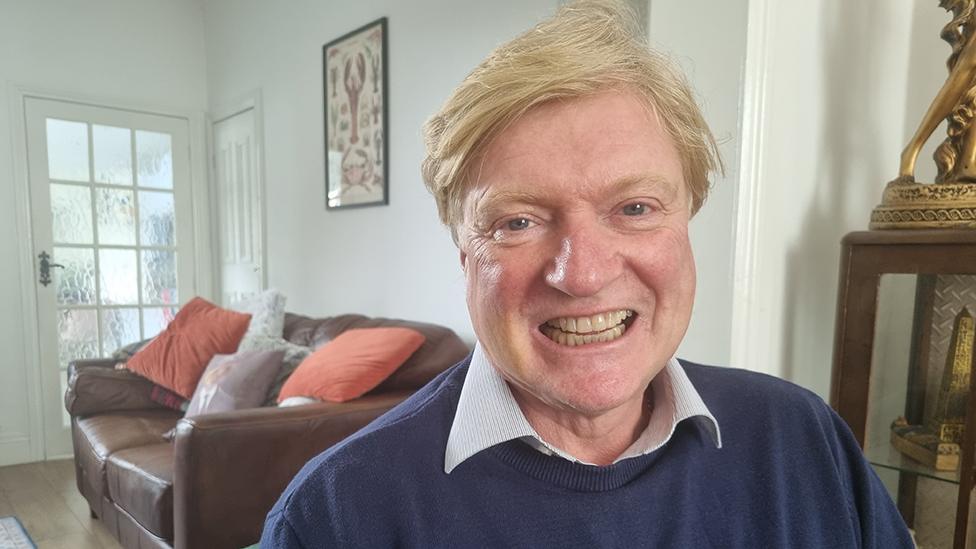What are the risks of dental tourism?
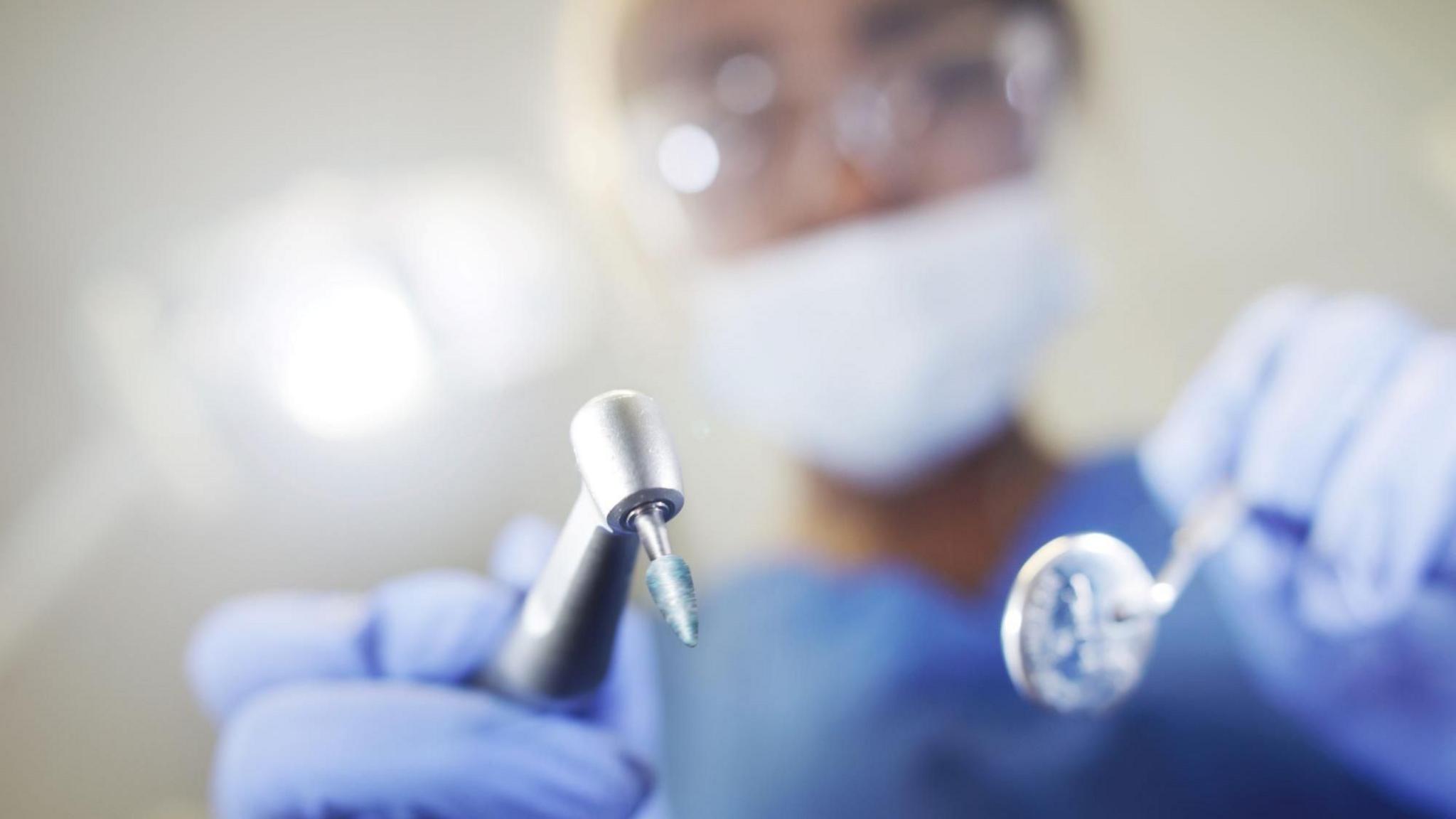
Many Brits are jetting off to countries like Turkey, Hungary and Poland for dentistry, but what are the risks?
- Published
"When we get these patients in and see the horror stories that are attached to them, it's quite depressing."
Paul Worskett, who runs the Dentique dental practice in Worcestershire, has seen the gamble of dental tourism play out in his patients' mouths.
Speaking of one patient who travelled to Spain for implants which then broke, he said: "She paid several thousand Euros for this work thinking she was getting it done more cheaply.
"But in the end it was just a complete waste of money because we had to redo the work for her."
Dental tourism has been on the rise over the past few years, with Brits jetting out to countries like Turkey, Hungary and Poland for dental work, a popular choice being veneers, hence the coining of the phrase "Turkey teeth".
Many will be content with their bright new smiles, but others have seen mixed or bad results.
The BBC recently spoke to Leanne Abeyance, 41, from Telford, who spent £3,000 to get four dental implants in Antalya, Turkey, after previously having veneers fitted in the country. She had been quoted £50,000 to have the work done in the UK.
The results have been catastrophic.
Ms Abeyance's septum - the cartilage and bone that separates the nostrils - has now collapsed, leaving her unable to breathe through her nose.
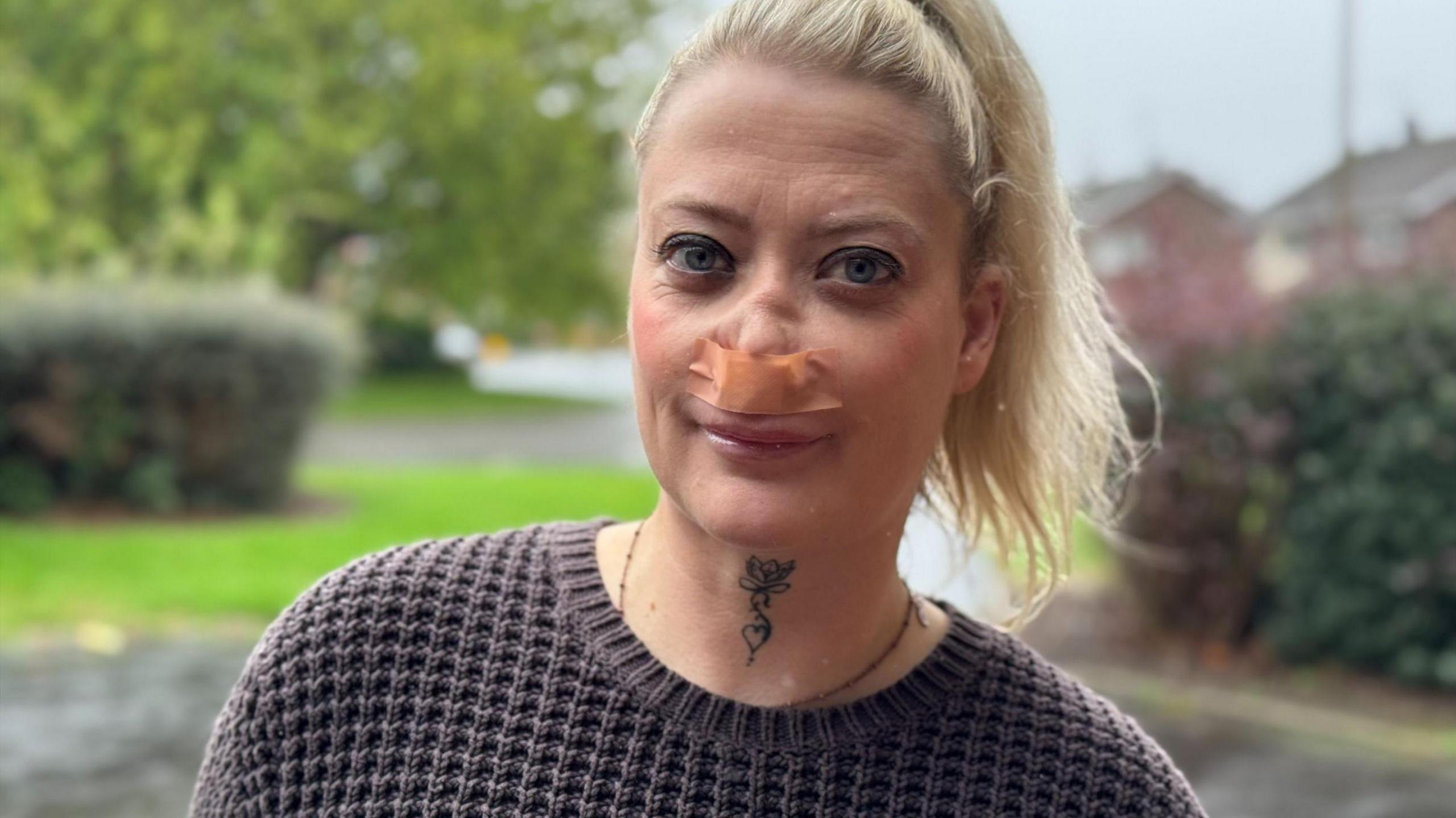
Leanne Abeyance says her nose has now collapsed, after having dental work in Turkey
Why are so many people going abroad for dentistry?
Like Leanne Abeyance, many are enticed by foreign clinics because of drastically reduced prices for dental work.
According to UK Smiles, external, veneers can cost £3,000-£6,000 in Turkey, compared with £8,000-£16,000 in the UK, while dental implants will cost you £400-£500 in Turkey and about £2,000-£2,500 in the UK.
Mr Worskett said: "A lot of patients assume what they're getting abroad is exactly the same treatment as they would have in this country but they're simply paying less for it - I think that's the main problem."
Eddie Crouch, a Birmingham dentist and the chair of the board for the British Dental Association (BDA), says there is another reason: patients' difficulties in finding an NHS dentist.
Earlier this year, the BDA said NHS dentistry was "on death's door", external.
"Historically people went to other parts of the world for advanced cosmetic procedures, but that has changed quite a lot with post-pandemic access levels," Mr Crouch said.
"People are going outside of the UK to receive relatively straightforward dentistry such as fillings, extractions, hygiene treatments which would not be deemed as advanced cosmetic treatments.
"So the type of people going abroad is very different."
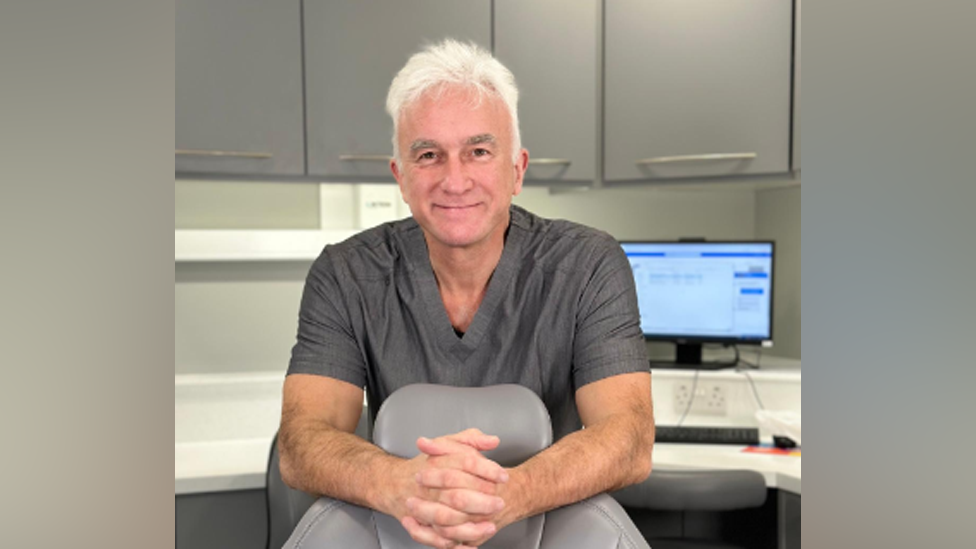
Paul Worskett has seen patients with significant complications from having surgery abroad
What are the risks?
For Mr Crouch, one of the major concerns is the quality of the screening taking place for patients before they travel abroad, with an "explosion" of consultations in "inappropriate circumstances" such as hotel rooms.
He says these are held by people representing the foreign clinics, who are not registered as dentists in the UK, "and should not legally be carrying out these assessments".
"The major problem is that sometimes patients are arriving in a country where they haven't been appropriately screened or consented to the treatment," he said.
"Our worry is sadly many of these people do have treatment carried out on them that probably wouldn't be carried out in the UK because they're not ready for that type of treatment."
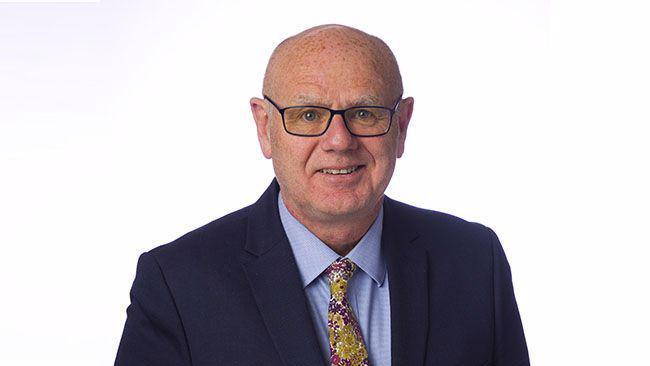
Eddie Crouch is concerned about the number of so-called consultations being held illegally by representatives for foreign clinics in UK hotels
Mr Crouch also believes patients can have a misconception of what work will actually be carried out on their teeth, particularly regarding veneers.
An image synonymous with Turkey Teeth for many will be the shaved-down stubs of the original teeth before the veneers are placed on, but Mr Crouch claims this is more "destructive dentistry" than UK-recognised veneers, which involve a "minimal amount" of tooth preparation.
Dr Worskett and Mr Crouch both spoke of the complications that could arise when the teeth are shaved down to such an extent - from abscesses and infections to teeth dying.
"When you start drilling teeth down like that, the risk of the tooth dying and needing root canal treatment is around 20%," Dr Worskett said.
What happens when it goes wrong?
"There is an expectation almost from some people that when they come back from having this treatment abroad that the NHS will put it right for them," Mr Crouch said.
"The restrictions on receiving high level NHS care to put this right is such that quite often they won't get a like-for-like replacement."
Dr Worskett added: "A lot of dentists in this country won't really have the knowledge or the background to tackle these problems in the first case.
"There are several hundred implant systems on the market globally and a lot of them are obscure.
"They also won't want to subject themselves to further litigation, because as soon as they start interfering with that work they could become subject to a claim."
For anyone still considering travelling abroad for dental work, Dr Worskett warned: "Be very cautious about it, speak to your own dentist about it and get their advice, because they're going to have a better understanding of the risks.
"But if you're determined to go ahead with it, speak to other patients and read testimonials.
"If the clinics can't provide those very convincingly then that should raise suspicions."
Get in touch
Tell us which stories we should cover in Shropshire
Follow BBC Shropshire on BBC Sounds, Facebook, external, X, external and Instagram, external.
Related topics
- Published17 September
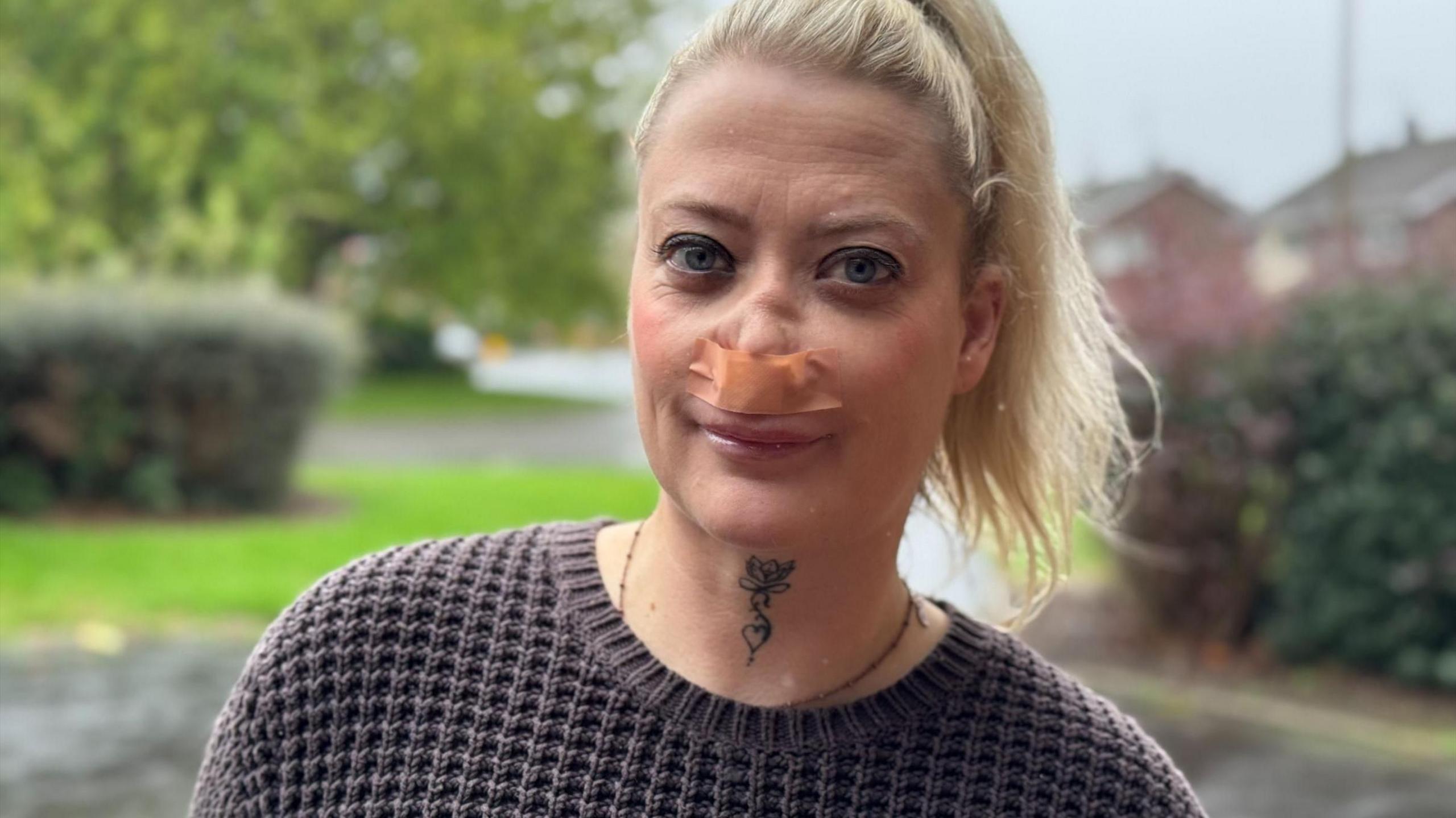
- Published15 August
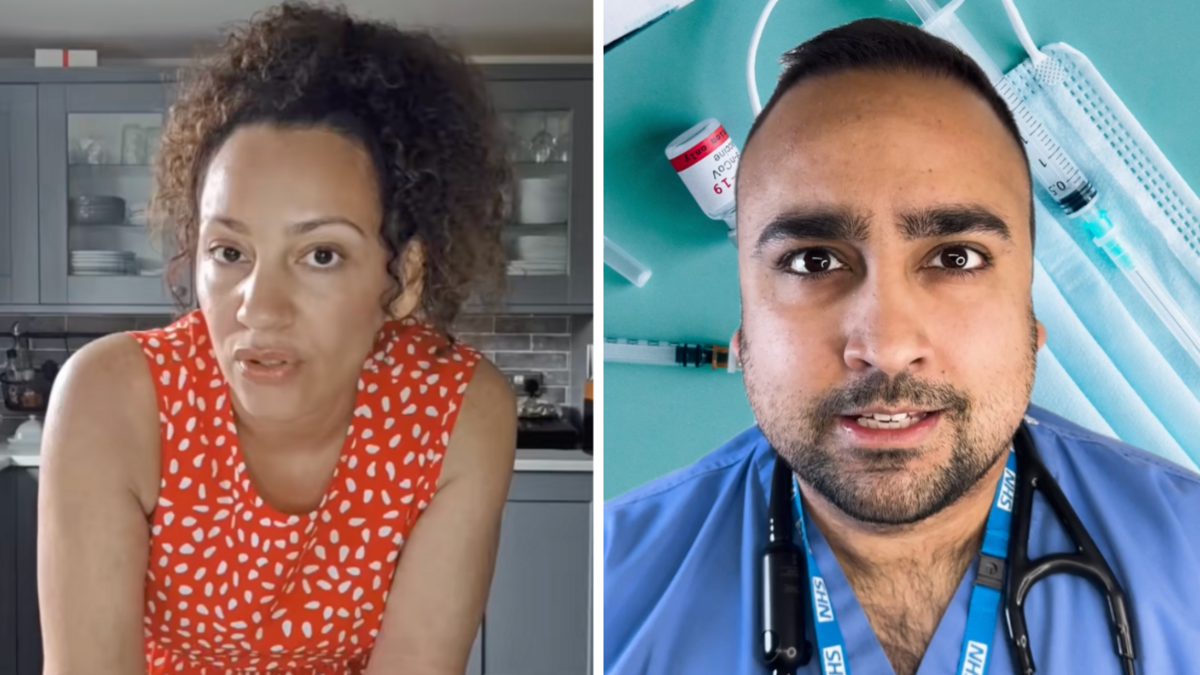
- Published29 September 2024
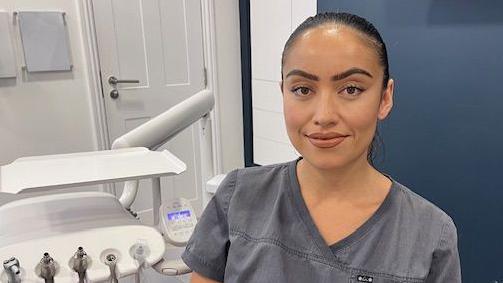
- Published6 March 2023
